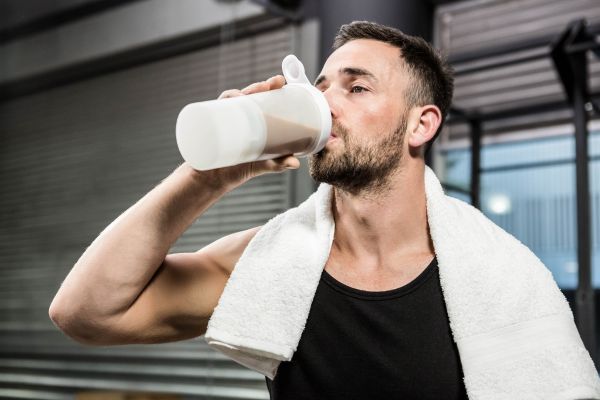When it comes to training hard, pushing limits, and building strength, one question always pops up in an athlete’s mind: how much protein do I really need? The truth is, protein intake for athletes isn’t some mysterious science reserved for nutritionists—it’s a practical, real-world factor that can make or break performance. Let’s dig into how protein plays its role, why balance matters, and how athletes can actually put this into practice without overthinking it.
Why Protein Matters for Athletes
Let’s be real—if carbs are the fuel, protein is the repair crew. Every sprint, lift, or push-up causes tiny tears in muscle fibers, and protein is what swoops in to rebuild and strengthen them. Without enough protein, those gains you’re working so hard for? They’ll stall.
But here’s the thing: protein isn’t just about muscles. It’s also essential for hormone production, immune system function, and even recovery speed. For athletes, it’s basically the behind-the-scenes crew making sure the show goes on.
How Much Protein Do Athletes Really Need?
The golden question: what’s the magic number? Research shows that protein intake for athletes generally ranges from 1.2 to 2.0 grams of protein per kilogram of body weight per day.
So, if you’re a 70 kg (about 155 lbs) runner or lifter, you’d be aiming for anywhere between 84 to 140 grams of protein daily. Sounds like a lot, but when you break it down across meals, it’s surprisingly doable.
Now, could you eat more? Sure. Some strength athletes go higher—closer to 2.2 g/kg—but let’s be honest, doubling down on protein shakes doesn’t automatically equal more muscle. Your body has a limit, and beyond that, extra protein just gets used as energy or stored.
Timing Matters: Spreading Protein Throughout the Day
Protein intake for athletes isn’t just about hitting a daily number—it’s about distribution. Imagine cramming all your protein into one huge steak dinner. Effective? Not so much.
Muscles can only use so much protein at a time for repair. That’s why spreading intake evenly across meals and snacks works better. Aim for 20–30 grams per meal, plus a protein-rich snack or recovery shake post-workout. This way, your muscles get a steady stream of amino acids instead of a flood they can’t fully use.
Best Sources of Protein for Athletes
You don’t need to live on chicken and protein powder to hit your goals. The fun part is mixing it up. Whole foods, plant-based sources, and yes, shakes all have their place.
Animal-based options: chicken, fish, lean beef, turkey, eggs, and dairy products. These provide complete proteins with all the essential amino acids.
Plant-based options: beans, lentils, tofu, tempeh, edamame, quinoa, and nuts. If you’re vegan or vegetarian, combining different plant proteins ensures you cover all amino acids.
And hey, let’s not forget protein powders. They’re not magic, but they’re convenient—especially when you’ve just crushed a workout and the last thing you feel like doing is cooking.
Protein and Recovery: Why Post-Workout Nutrition Matters
You know that window of time after training when you’re sweaty, tired, and kind of proud? That’s prime time for protein intake. Post-workout protein helps kickstart muscle repair and reduces soreness later. Pair it with some carbs (like a banana or oats), and you’ve got a recovery meal that fuels glycogen stores too.
Think of it as damage control. The workout breaks you down, and recovery nutrition builds you back stronger.
Myths About Protein Intake for Athletes
Let’s clear the air on a few things:
First, eating huge amounts of protein won’t turn you into a bodybuilder overnight. Muscle growth still depends on training intensity, sleep, and overall calorie balance.
Second, protein doesn’t wreck healthy kidneys in normal individuals. Unless you already have kidney issues, higher protein intake within recommended ranges is safe.
And third, plant-based athletes aren’t doomed to protein deficiency. With planning and variety, they can hit their numbers just as effectively as meat-eaters.
Signs You’re Not Getting Enough Protein
Sometimes, it’s not about numbers but how your body feels. Constant fatigue, slow recovery, frequent injuries, and nagging cravings can all hint at low protein intake. For athletes, these signals are like warning lights on the dashboard—ignore them, and performance will dip.
Practical Tips to Boost Protein Intake
Start your day with protein. Eggs, Greek yogurt, or a plant-based smoothie set the tone.
Snack smart—think nuts, jerky, cottage cheese, or hummus with whole-grain pita.
Double up on protein at dinner by combining animal and plant sources—like salmon with quinoa.
And yes, don’t be afraid of supplements if food alone doesn’t cut it.
Finding Balance Without Obsession
At the end of the day, protein intake for athletes shouldn’t feel like math homework. It’s about finding balance, listening to your body, and making sure every meal has a decent protein source. Athletes who nail this tend to recover faster, stay stronger, and honestly—enjoy their training more.
Conclusion: The Real Secret Behind Protein and Performance
Protein intake for athletes is more than just grams and numbers—it’s a lifestyle habit that supports performance, recovery, and long-term health. The sweet spot lies in consistency, variety, and smart timing. You don’t have to obsess, but you do have to care.
So, whether you’re chasing a new PR, grinding through practices, or just trying to stay in shape, remember this: fuel your body right, and it will return the favor. Because when protein works behind the scenes, you get to shine on the field, in the gym, or wherever your sport takes you.





